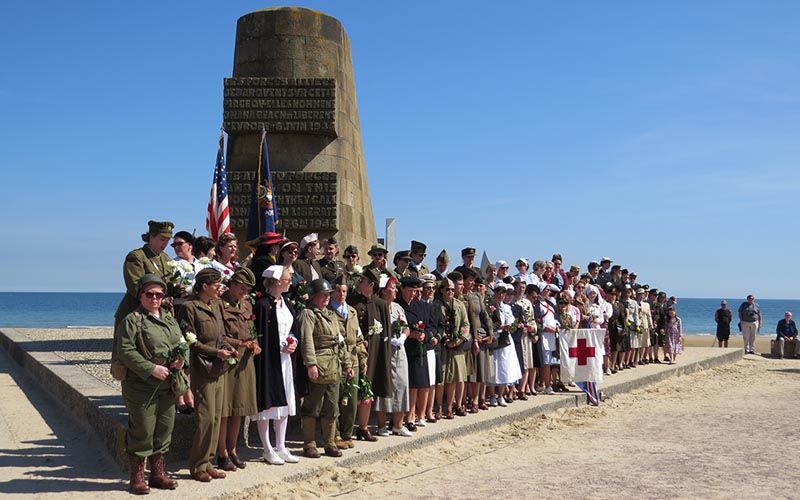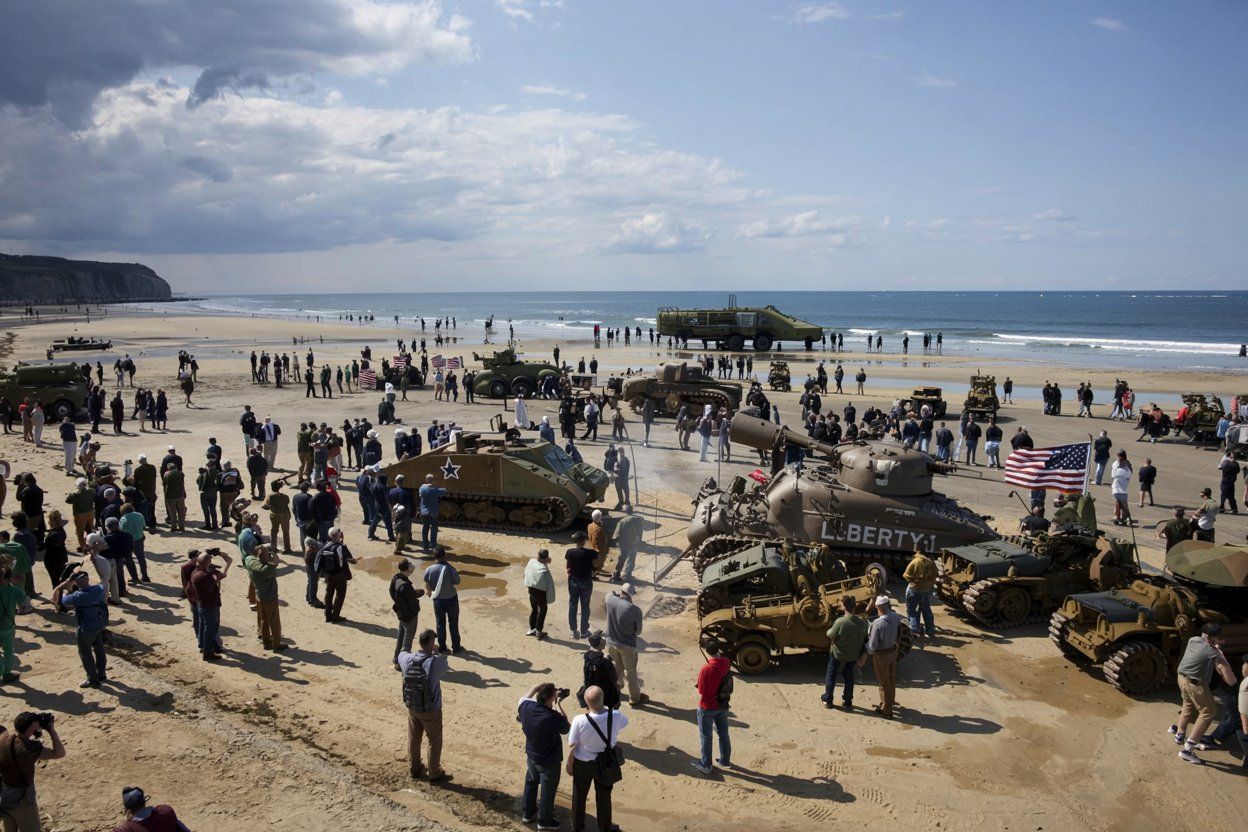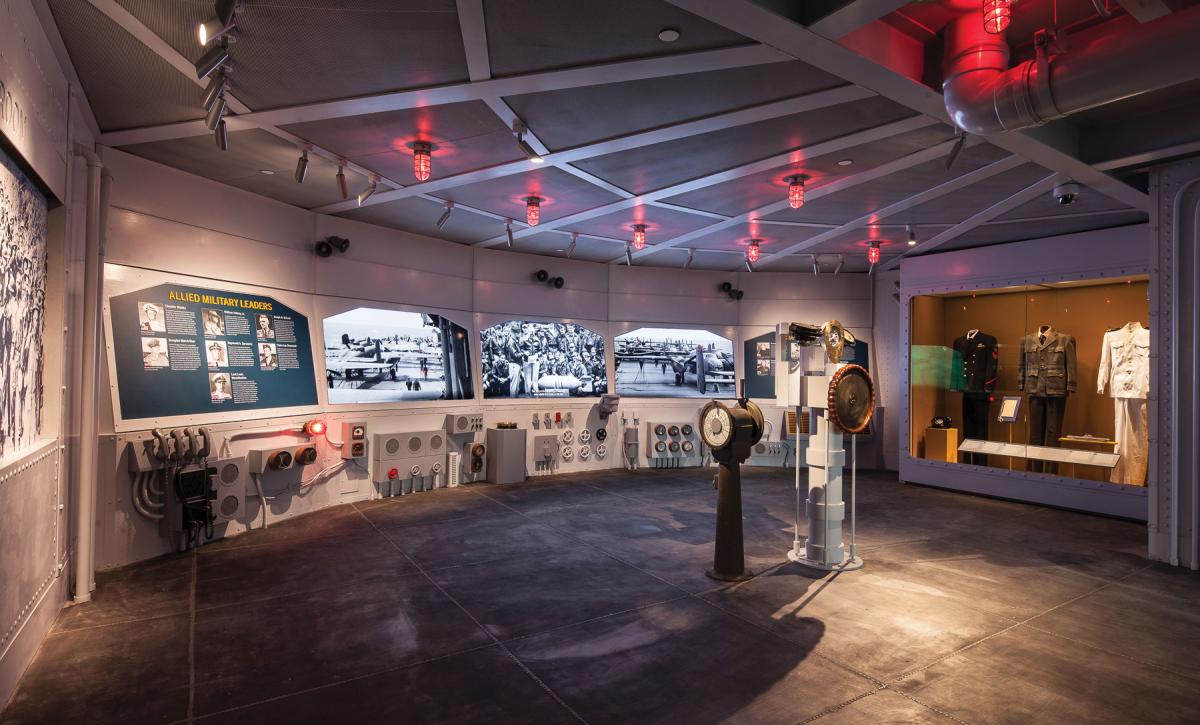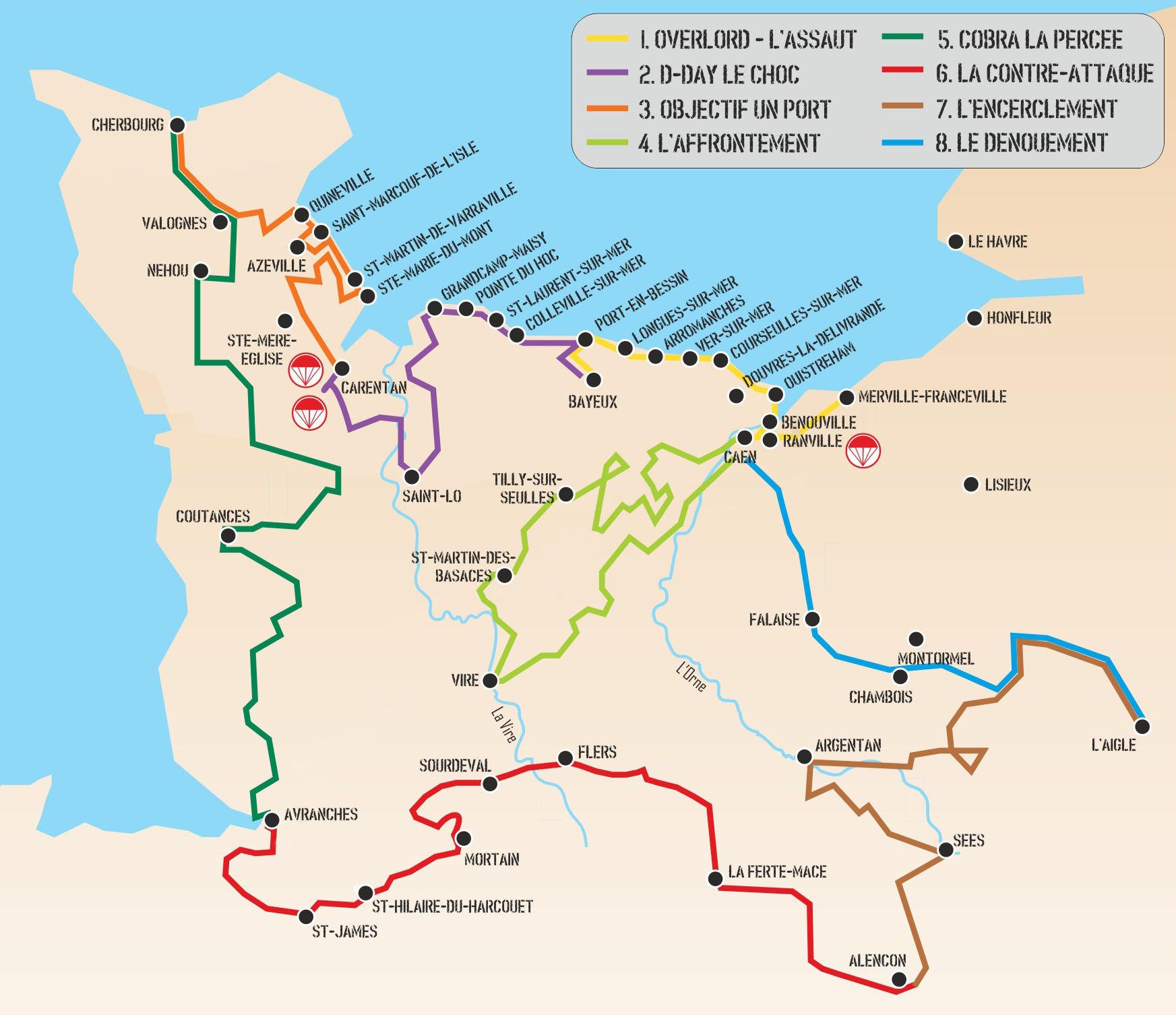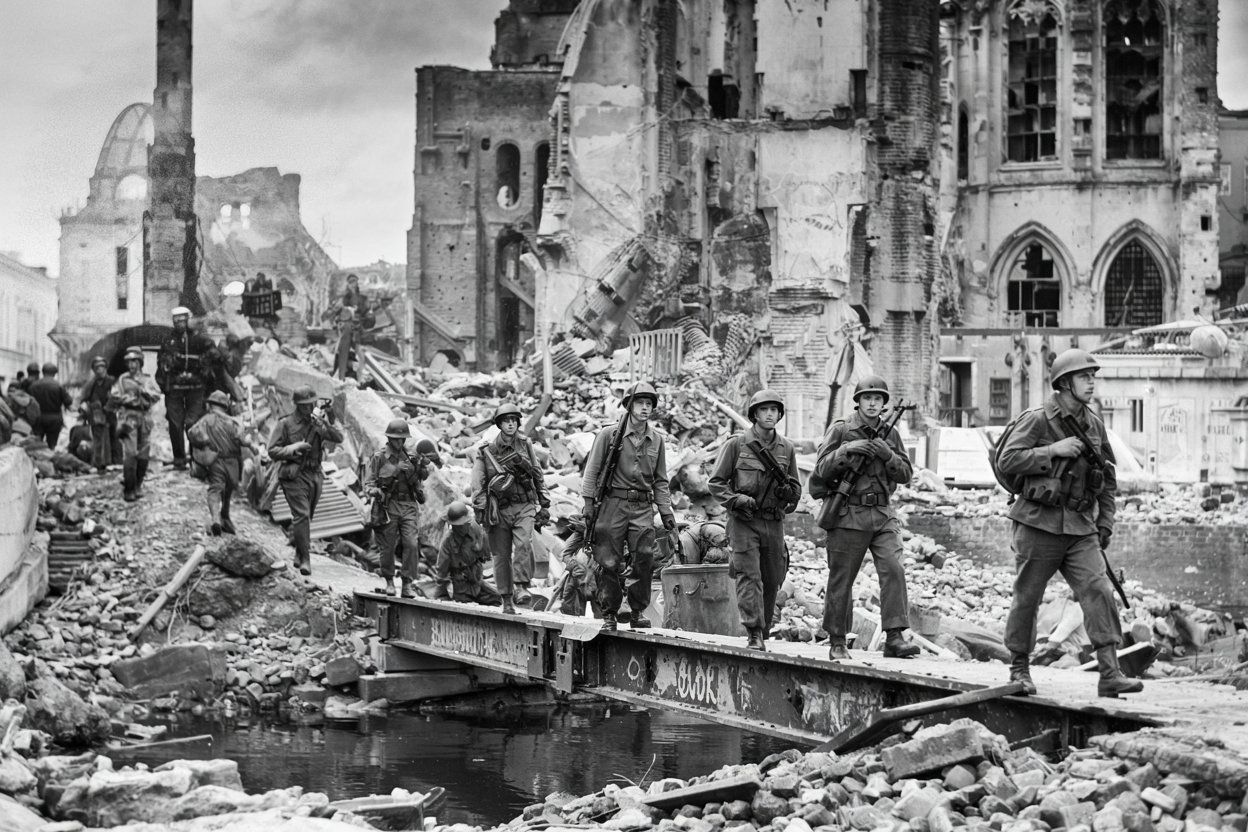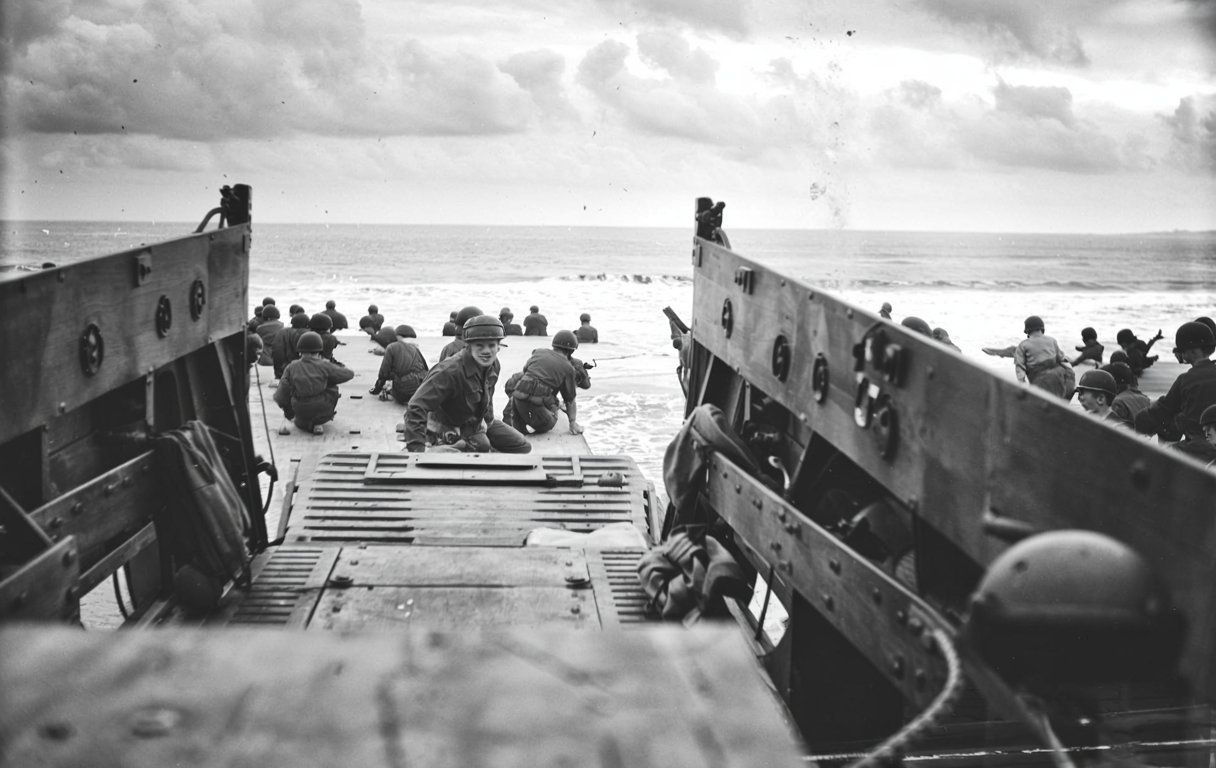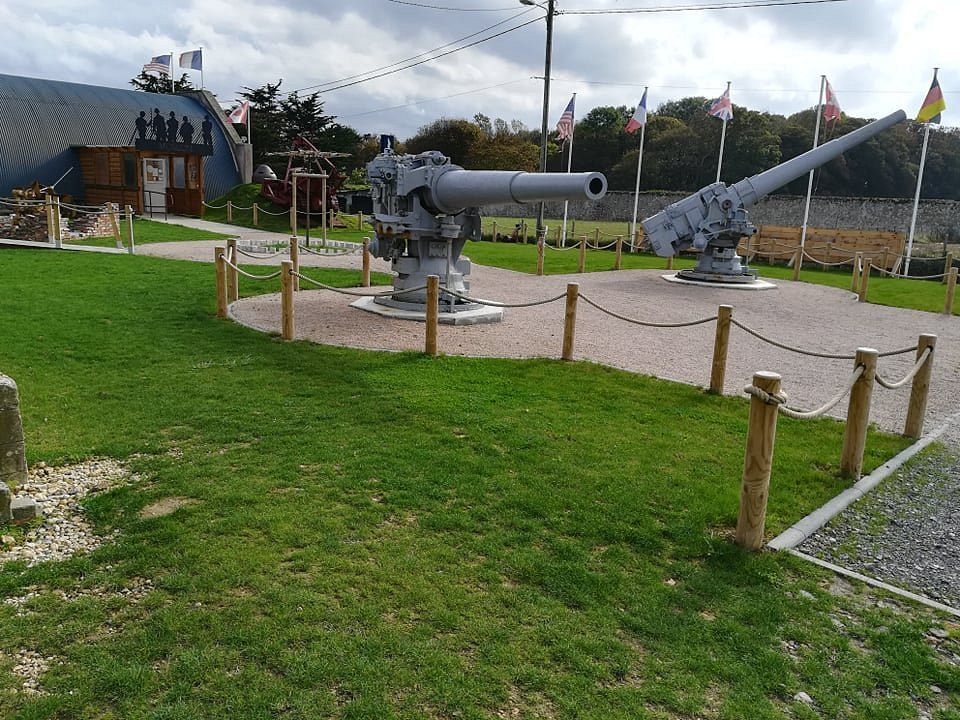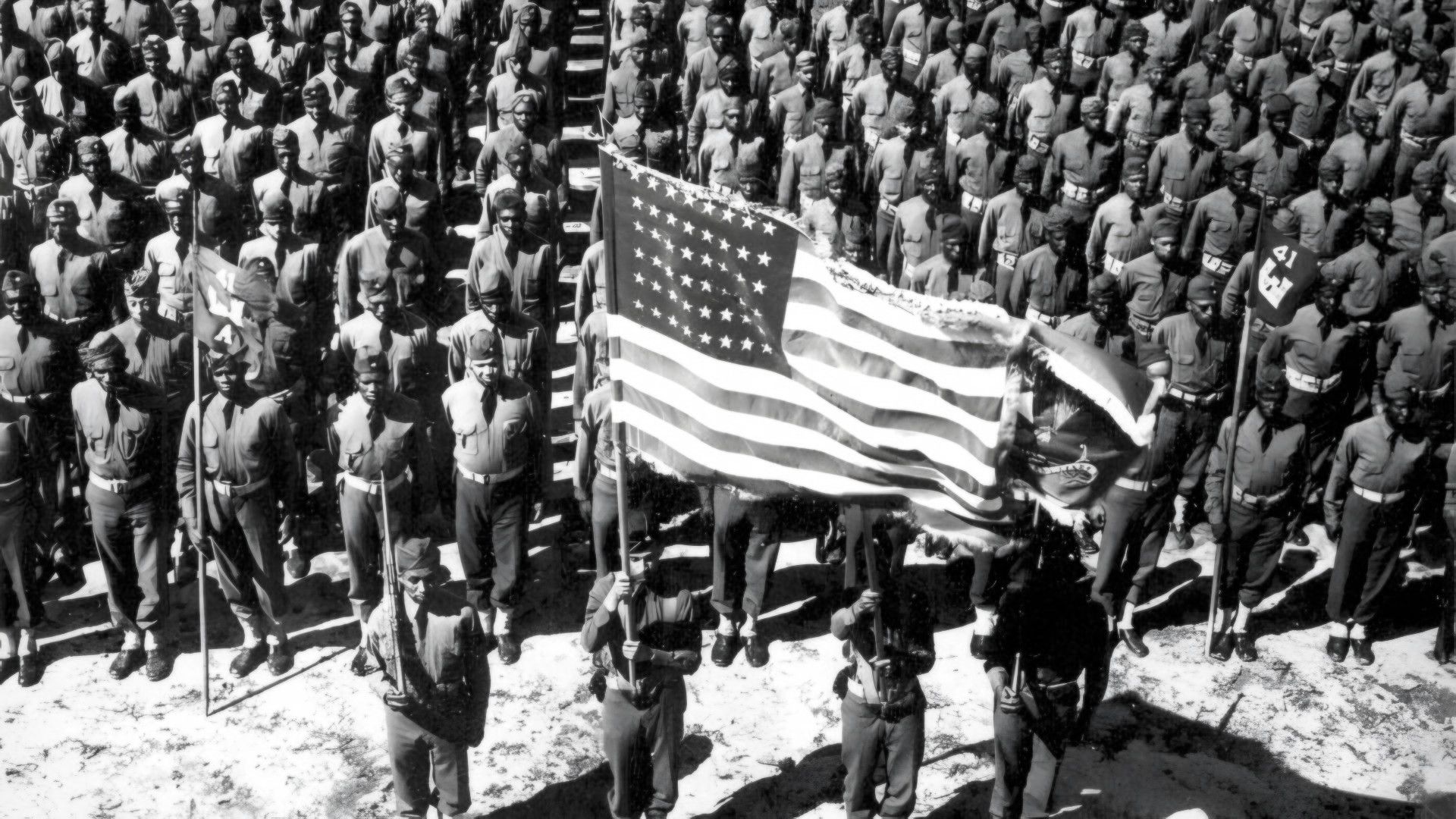In September 1938, British Prime Minister Neville Chamberlain came back from Munich waving a piece of paper and famously declared “peace for our time.” Within a year, Europe plunged into war anyway.
The Munich Agreement still stands as one of history’s most debated diplomatic decisions. Britain and France basically handed over part of Czechoslovakia to Nazi Germany without any real resistance.
The agreement became the defining example of appeasement, a policy where leaders tried to make concessions to aggressive powers, hoping to avoid bigger conflicts. Chamberlain honestly believed he could satisfy Hitler’s demands and keep Europe from another devastating war like the last one. At the time, the strategy seemed reasonable to many, but in hindsight, it turned out to be a costly miscalculation.
Munich’s story shows how fear of war can sometimes make conflict more likely. The key figures who gathered in Bavaria negotiated Czechoslovakia’s fate, and their decisions left a lasting mark on international relations.
This diplomatic failure changed how the world thinks about standing up to aggression. Lessons from those September days still shape foreign policy today.
Historical Context of the Munich Agreement
The Munich Agreement came out of deep tensions left behind by World War I and Hitler’s aggressive moves across Europe.
Germany’s humiliation under the Treaty of Versailles and the rise of Nazi power set up the 1938 crisis over Czechoslovakia’s Sudetenland.
Aftermath of World War I and the Treaty of Versailles
The Treaty of Versailles in 1919 redrew Europe after Germany’s defeat in World War I. The treaty stripped Germany of territory and slapped harsh penalties on the country.
Germany lost important regions like the coal-rich Saar Basin and Alsace-Lorraine. The treaty also carved out new nations from former German and Austro-Hungarian lands.
Czechoslovakia was one of these new states.
Key Treaty Provisions:
- Massive reparations payments to Allied nations
- Military restrictions that limited the German army’s size
- Demilitarized zones along German borders
- Loss of all overseas colonies
Germans saw these terms as unfair punishment. Many Germans now lived in territories controlled by other countries.
Political leaders later took advantage of this resentment.
The treaty also created the League of Nations to keep peace, but the United States never joined. This weakened the group from the start.
Germany didn’t get to join at first either.
Rise of Adolf Hitler and the Nazi Party
Adolf Hitler took power in Germany in 1933. He promised to restore German strength and reclaim lost territories.
The Nazi Party attracted Germans who felt humiliated by defeat and the harsh treaty.
Hitler broke treaty restrictions right away. In 1935, German voters in the Saar region voted to rejoin Germany.
That success made Hitler more confident, so he pushed further.
Hitler’s Early Expansions:
- March 1936: German troops marched into the Rhineland
- March 1938: Germany annexed Austria (Anschluss)
- 1938: Hitler set his sights on Czechoslovakia’s Sudetenland
Each move made him bolder. Britain and France didn’t stop these actions and stuck to appeasement, hoping giving Hitler some territory would prevent a bigger war.
Hitler also formed alliances with Italy through the Rome-Berlin Axis. These partnerships gave him a stronger position in Europe.
By 1938, Hitler felt ready to demand the Sudetenland from Czechoslovakia.
The Legacy of the Sudetenland and Czechoslovakia
Czechoslovakia came into being in 1918 from parts of the old Austro-Hungarian Empire. President Edvard Beneš led a country with several ethnic groups.
There were 10 million Czechs, 3 million Slovaks, and about 3 million German speakers. Most of the German-speaking population lived in the Sudetenland, along the borders with Germany and Austria.
Czechoslovakia’s Population (1938):
- Czechs: 10 million
- German speakers: 3 million
- Slovaks: 3 million
- Hungarians: 700,000
- Others: 1.06 million
Hitler exploited the tensions between these groups. He funded the Nazi Sudeten German Party, led by Konrad Henlein, which stirred up trouble and claimed Czechs oppressed German speakers.
Czechoslovakia had strong defenses and a modern army of a million soldiers. The nation also had valuable industrial resources.
Hitler realized he needed diplomacy, not force, to get the Sudetenland.
The Munich crisis kicked off when Hitler demanded the Sudetenland in September 1938.
Prelude to the Munich Agreement
The road to the Munich Agreement started with rising tensions over German minorities in Central Europe. The Western powers hesitated to confront Nazi expansion.
British and French leaders chose diplomatic concessions over military action. This set the stage for the September 1938 crisis.
Growing Tensions in Central Europe
The Sudetenland crisis grew out of deep ethnic tensions in Czechoslovakia. About three million ethnic Germans lived in the border regions, nearly 23% of the population.
These Germans struggled during the Great Depression. By 1936, 60 percent of unemployed people in Czechoslovakia were Germans.
Konrad Henlein started the Sudeten German Party (SdP) in 1933. The party quickly won support among frustrated German voters.
By 1935, the SdP became the second-largest political party in Czechoslovakia. It took two-thirds of votes in German-majority districts.
After Germany annexed Austria in March 1938, Henlein met Hitler in Berlin. Hitler told him to make demands unacceptable to the Czechoslovak government.
The SdP issued the Karlsbader Program on April 24, 1938, demanding full autonomy for Germans in Czechoslovakia.
President Edvard Beneš offered minority rights but at first refused autonomy. The SdP won 88% of ethnic German votes in May 1938, showing their growing power.
Appeasement in British and French Foreign Policy
British Prime Minister Neville Chamberlain felt Hitler’s territorial claims made sense. He desperately wanted to avoid another European war.
The United Kingdom and France remembered World War I’s massive casualties. Both countries doubted their people would support another conflict.
Chamberlain saw Sudeten German complaints as justified. He assumed Hitler only wanted to unite German-speaking peoples.
The French government refused to face Germany alone. France followed Britain’s lead.
Both British and French leaders advised Czechoslovakia to accept German demands. They put peace ahead of Czechoslovakia’s territorial rights.
Diplomatic negotiations replaced military threats as the main tool. Western leaders believed they could satisfy Hitler with reasonable concessions.
This policy of appeasement reflected a real desire for peace. But it also showed they misunderstood Nazi ambitions.
Events Leading to the Munich Conference
Hitler gave his generals Operation Green on May 20, 1938, which was Germany’s secret plan to attack Czechoslovakia.
Beneš ordered partial mobilization on May 19, hoping to deter a German invasion.
Britain sent Lord Runciman as mediator in August 1938. His job was to convince Beneš to accept terms that favored Sudeten Germans.
Germany placed 750,000 soldiers along Czechoslovakia’s border in August. Officials claimed these were just routine army exercises.
Beneš offered the Fourth Plan in early September. This plan granted nearly all Sudeten German demands for autonomy.
The SdP rejected the compromise, following Hitler’s instructions. They used a minor police incident in Ostrava as an excuse to break off talks.
Hitler gave a fiery speech at Nuremberg on September 12. He condemned Czechoslovakia and demanded self-determination for Sudeten Germans.
The crisis hit its peak, and war seemed close. Chamberlain called for an emergency meeting with European leaders to prevent conflict.
Key Figures and Powers Involved
The Munich Agreement brought together four European leaders who shaped the path to World War II.
British Prime Minister Neville Chamberlain led the appeasement push, and French Prime Minister Édouard Daladier reluctantly supported it despite France’s military promises to Czechoslovakia.
Neville Chamberlain and the British Government
Neville Chamberlain served as British Prime Minister from 1937 to 1940. He was determined to avoid another devastating war like World War I.
Chamberlain created the policy of appeasement, basically giving Hitler what he wanted to prevent a bigger conflict. He thought he could control German expansion through negotiation.
He met Hitler three times in September 1938—first at Berchtesgaden, then at Bad Godesberg, and finally at Munich.
After signing the Munich Agreement, Chamberlain came back to London. He waved a piece of paper at the airport and announced “peace for our time” to cheering crowds.
Winston Churchill strongly opposed Chamberlain’s appeasement. Churchill warned that giving in would only encourage more German aggression.
Most British politicians ignored Churchill back then.
The British government felt public pressure. Many people wanted to avoid war, haunted by memories of World War I’s terrible losses.
Édouard Daladier and the French Response
Édouard Daladier was the French Prime Minister during the Munich crisis. He fought in World War I and knew what war cost.
France had signed a military alliance with Czechoslovakia in 1925. This treaty promised French support if Germany attacked Czechoslovakia.
Daladier broke this promise at Munich.
The French Prime Minister felt stuck between his country’s commitments and the reality of German power. France wasn’t ready for war in 1938.
The French military was weaker than Germany’s growing forces.
Daladier expected angry crowds when he returned to Paris. Instead, people cheered, relieved that war had been avoided. He reportedly called the crowds fools.
After Munich, France lost a strong ally in Czechoslovakia. German forces now surrounded France from three sides.
French military leaders worried about their defensive strategy. Losing Czech forces meant fewer troops to fight Germany.
Adolf Hitler and Nazi Germany
Adolf Hitler demanded the Sudetenland region of Czechoslovakia, home to about 3 million ethnic Germans. Hitler claimed he wanted to protect them.
Nazi Germany had grown stronger since 1933. Hitler rebuilt the German military, ignoring the Treaty of Versailles. He wanted to unite all German-speaking people under his rule.
Hitler used the threat of war to get his way. He moved German troops to the Czech border and gave fiery speeches demanding immediate action.
The Munich Agreement felt like a big win to Hitler. It showed Britain and France wouldn’t fight to stop him, which encouraged his future aggression.
Hitler broke his Munich promises within six months. In March 1939, German forces took over the rest of Czechoslovakia.
This destroyed the Munich Agreement completely.
Nazi propaganda celebrated Munich as proof of Hitler’s genius. Germans believed their leader had won a great victory without fighting.
Benito Mussolini’s Role in the Conference
Benito Mussolini played the peacemaker at Munich. The Italian dictator wanted a bigger role in European affairs.
Italy was Germany’s ally, but Mussolini knew his military couldn’t handle a major war. Italy’s forces were weaker than those of Britain, France, and Germany.
Mussolini suggested holding the conference in Munich. He helped organize the final meeting between the four powers, giving himself a chance to shine diplomatically.
The Italian leader backed Hitler’s demands for the Sudetenland. He also helped convince Chamberlain and Daladier to agree to the German position.
Mussolini gained prestige from the Munich Conference. European newspapers praised his diplomatic skills.
This success encouraged him to make his own territorial demands later.
Italy’s role at Munich tightened the Rome-Berlin Axis. Mussolini drew closer to Hitler after seeing appeasement work.
The Munich Conference and the Agreement
The Munich Conference took place on September 29-30, 1938. Leaders from Germany, Britain, France, and Italy gathered to decide Czechoslovakia’s fate.
The agreement handed over the Sudetenland to Germany. Neither Czechoslovakia nor the Soviet Union got a seat at the table.
Negotiations and Decisions at the Munich Conference
The conference started just before 1 pm on September 29, 1938. Four leaders met in Munich, trying to avoid war over the Sudetenland.
Conference Participants:
- Adolf Hitler (Germany)
- Neville Chamberlain (Britain)
- Édouard Daladier (France)
- Benito Mussolini (Italy)
Hitler showed obvious anger during the meeting. He wanted to take the Sudetenland as a conqueror, not through negotiations.
Mussolini presented a written plan that became the Munich Agreement. The German Foreign Office had actually prepared it, but people didn’t find out for years.
The leaders accepted the proposal quickly. None of them invited the Czech diplomats waiting in a Munich hotel to join the talks.
Chamberlain and Hitler signed an extra paper before leaving Munich. This document stated their wish to resolve future differences through consultation to keep the peace.
Terms of the Munich Agreement
The Munich Agreement set out clear terms for Germany to annex the Sudetenland. These terms basically echoed what Hitler had demanded earlier at Bad Godesberg.
Key Terms:
- The German army would occupy the Sudetenland by October 10, 1938
- An international commission would decide what happened to other disputed areas
- Czech forces and civilians had to leave the region immediately
- Czechs got no compensation for property they left behind
About three million Sudeten Germans lived in western Czechoslovakia at the time. They’d been part of Czechoslovakia since 1918.
Czechoslovakia faced a grim choice: stand against Germany alone or accept the annexation. In the end, the Czech government gave in.
France and Britain delivered this ultimatum to Czechoslovakia. They made it plain they wouldn’t send military help if the Czechs resisted.
Exclusion of Czechoslovakia and the Soviet Union
Czechoslovakia didn’t get a say in its own fate. Czech diplomats just waited in a Munich hotel while the four powers carved up their country.
This exclusion broke basic diplomatic norms. No Czech representative ever entered the conference room or shaped the agenda.
The Soviet Union got left out of the talks too. The Soviets had a treaty with Czechoslovakia and said they’d help defend the country.
But Soviet help depended on France and Britain joining in. Both those Western powers ignored the Soviet offers during the crisis.
Leaving out the Soviets had real consequences. It pushed them toward neutrality and later nudged Stalin to sign the Nazi-Soviet Pact in 1939.
Hungary also got permission to take over Czech territory with big Hungarian populations. This happened after the main Munich Agreement through separate talks.
Leaving out key parties made the agreement shaky from the start. It might have solved the crisis for the moment, but it sparked bigger problems for European security.
Consequences and Immediate Outcomes
The Munich Agreement set off a chain reaction across Europe that tipped the balance of power. Czechoslovakia lost its best defenses, and Britain and France caught heavy criticism for abandoning their ally.
Impact on Czechoslovakia and Eastern Europe
The Munich Agreement crushed Czechoslovakia’s strategic position. The country lost the Sudetenland, which held its main border forts and industrial hubs.
Czechoslovakia’s military defenses collapsed overnight. The Sudeten mountains had given natural protection against German attack. Without those fortifications, the country couldn’t defend itself.
President Edvard Beneš stepped down in October 1938. He couldn’t accept the territorial losses forced on his country.
The economic fallout hit hard. Czechoslovakia lost key industrial zones and coal mines. Roughly 800,000 Czech and Slovak citizens suddenly found themselves under German rule.
Other Eastern European countries watched with growing anxiety. Poland and Hungary quickly grabbed more Czech land in October 1938. The Soviet Union started doubting whether the West would ever stand up for collective security.
The agreement sent a pretty grim message to smaller nations. They realized they couldn’t count on Western powers to protect them from German expansion.
The Collapse of Collective Security
The Munich Agreement basically wrecked the League of Nations system. Britain and France gave up on collective security by sacrificing Czechoslovakia without even talking to them.
The Soviet Union got completely left out of the Munich talks. Stalin saw this as the West giving Germany a green light to expand east. Soviet trust in the West pretty much vanished.
France broke its 1925 alliance with Czechoslovakia. The French government picked appeasement over keeping its promises. That move hurt France’s reputation with other Eastern European allies.
Germany gained the upper hand. Hitler got strategic territory, industrial resources, and a big confidence boost for future moves.
Smaller countries started looking elsewhere for security. Some drifted closer to Germany, while others searched for new options.
Response in Britain and France
Neville Chamberlain came back to London saying he’d secured “peace for our time.” Crowds cheered him as a hero who’d kept Britain out of war.
At first, most Britons backed the agreement. People dreaded another world war and thought Chamberlain had made the right call.
Winston Churchill wasn’t buying it. He blasted the policy and warned Parliament that Britain had chosen “dishonour” and would still have to fight later.
In France, Édouard Daladier got a similar hero’s welcome, even though he had serious doubts. The French public felt relieved to avoid a fight with Germany.
Both governments used the breathing room to ramp up military spending. Britain sped up aircraft production, and France started modernizing its forces.
Critics popped up quickly in both countries. Some politicians and newspapers questioned whether appeasement would really keep the peace. Public opinion started to shift as Hitler’s real plans became obvious in 1939.
Legacy of Appeasement and the Munich Agreement
The Munich Agreement set a dangerous example and encouraged Adolf Hitler to grab more territory. This failure in policy led straight to the invasion of Poland and showed just how disastrous appeasing aggressive dictators could be.
Path to the Invasion of Poland and World War II
The Munich Agreement proved that the policy of appeasement couldn’t satisfy Hitler’s ambitions. Within six months, German troops marched into the rest of Czechoslovakia in March 1939. That move broke the Munich Agreement completely.
Hitler saw British and French weakness as a green light to keep expanding. He believed the Western powers wouldn’t fight to stop German aggression. Churchill warned Parliament that appeasement was just feeding a crocodile, hoping it would eat Britain last.
Poland became Hitler’s next target in 1939. Britain and France finally gave up on appeasement and promised to defend Polish independence. When Germany invaded Poland on September 1, 1939, both countries declared war on Germany.
World War II started because the Munich Agreement didn’t prevent conflict. Instead, it just delayed war and let Germany get stronger and bolder.
Historical Judgement and Lessons Learned
Most historians see the Munich Agreement as one of the worst diplomatic failures of modern times. The deal basically told dictators that democracies might just toss smaller nations aside if it means avoiding war.
That idea encouraged even more aggressive expansion across Europe. It’s a lesson that still makes people uneasy.
Modern leaders look at appeasement and shake their heads, seeing it as a classic case of foreign policy gone wrong. The Munich Agreement shows how giving in to unreasonable demands usually backfires, leading to even bigger conflicts later.
Plenty of politicians still bring up “Munich” whenever they argue against compromising with hostile nations. It’s almost become shorthand for what not to do.
The agreement exposed just how risky it is to leave allies stranded. Czechoslovakia stood as a strong democracy, well-defended, but Western powers turned their backs and left it wide open.
That choice did more than just hurt Czechoslovakia, it weakened the whole idea of collective security in Europe. The consequences echoed far beyond those borders.
Churchill’s warnings about appeasement hit the mark when war broke out anyway. His stubborn opposition to the Munich Agreement helped cement his reputation as someone who actually understood the Nazi threat.

